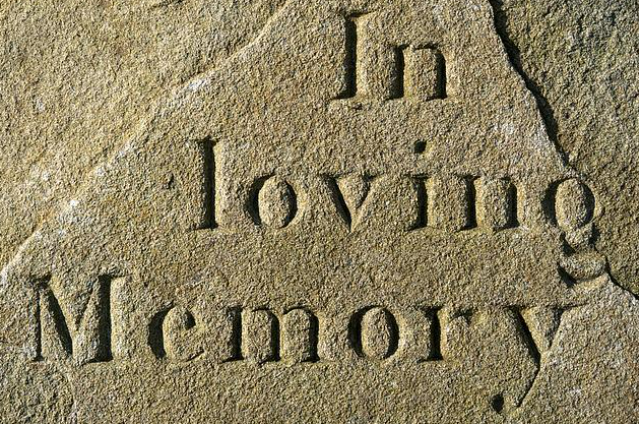
Death is not the end of life yet it is a transition from the worldly life to the afterlife. It is the cessation of human body but it cannot destroy the human soul which is indestructible. It is not easy to distinguish life from death because life is a phenomenon or function of organism and death is a transition of life itself. The only thing that can distinguish life from death is the stream of consciousness, where life is defined in terms of consciousness and death is the ceasing of consciousness.
Many people fear death. The thought of dying creates discomfort and fear in them as they don't want to undergo the process of transition. Human body is a matter which is driven by the soul likewise the plane is driven by the pilot. The soul is the hypothetical counterpart but it is not transient unlike the body. When the soul leaves the body it gets freedom from the shackles of the matter and goes somewhere up in the sky through the doors of heaven, feeling more liberated from the fences.
Death, Be Not Proud is a very famous metaphysical poem published in the 17th century by John Donne in the first edition of Songs and Sonnets. This poem is a personification of death and how it creates an impact on human lives. The theme of the poem is not merely based on death's haughtiness rather it's confrontation and it's inability to destroy or corrupt the human soul. Donne argues Death, Be Not Proud for you can destroy the human body but not the eternal soul which is indestructible.
The poet argues death for its power as it acts merely as a "short sleep" between worldly life and the eternal life, it is just a transformation to a life which is accomplished beyond human expectation. What one acquires after death is incomparable to the earthly life. Death allows human soul to achieve the state of complete rest and satisfaction.
In the poem Donne argues finally at the end , it is death that shall die not the human soul.
One short sleep past, we wake eternally
And death shall be no more; Death, thou shalt die.
The poem is a confrontation of death, it is absolutely an argument with death itself as it is considered a person. The speaker directly personifies death and argues with it not be arrogant for some people may fear it and find it scary but the fact is that the human soul is stronger than the haughtiness of death. One should not lament on death as it is a sleep and rest for the bones that gives the highest level of peace to the human soul.
Comparing death to rest and sleep, the speaker portrays a good picture of death, one who has undergone it must have been enjoying unimaginable pleasure. Death is not more than a sleep between the earthly life and the after life where no troubles can visit the soul up in the heavens.
When we live we think what is beyond death? Is there heaven or hell or a world celebrated by souls? Is it an accomplishment of absolute peace or an inception to a higher existence?
Life beyond death is the beginning of a very different life from that on the earth, delving deep into theologies of the beings present in the heavenly world. One who is more attached to spiritualism can better comprehend the cycle of death and the condition of the soul after it gets liberated from the shackles of human body. During the last sixty years, spiritualism has made considerable progress convincing many scientific minds , who have been earnestly seeking for the truth of man's survival after death. The Experimental Spiritualism began in America in 1870 ( from the book life beyond death). The main aim of spiritualism is to let one believe in life after death, the relation of the liberated soul with God.
Higher Spiritualism is therefore, is the name for that which starting from the belief in a life after death, reveals the nature of soul and its relation to the God. The higher Spiritualism is at the root of all great religions in the world. Communications with so called angels or messengers of God or Devas or bright spirits as they are called in India, have been the source of knowledge and spirits of the Prophets and seers in the old Testament. From the time of Abraham, Jacob and Moses down to the time of Christ and his disciples all prophets saw the spirit, heard them speak and followed their teachings. As is Christianity and Judaism, so it is in the other religions of the world. As revelations came to the sincere and earnest souls of the past, so they have come even in this age.
Does the soul remain alive or become dead after human's death?
Does the soul exist after death?
"There is this doubt, when a man dies some say he is gone for ever, that he does not exist, while others hold that he is still alive; which of this is true?"
From ancient times, there have been aesthetics and agnostic thinkers in India who denied the existence of soul after death. They believe that the body is the soul and the soul does not exist outside the body, and that when the body dies, the soul is also dead and gone.
(from the book life beyond and death)
